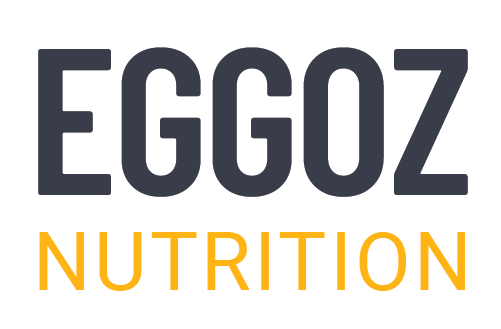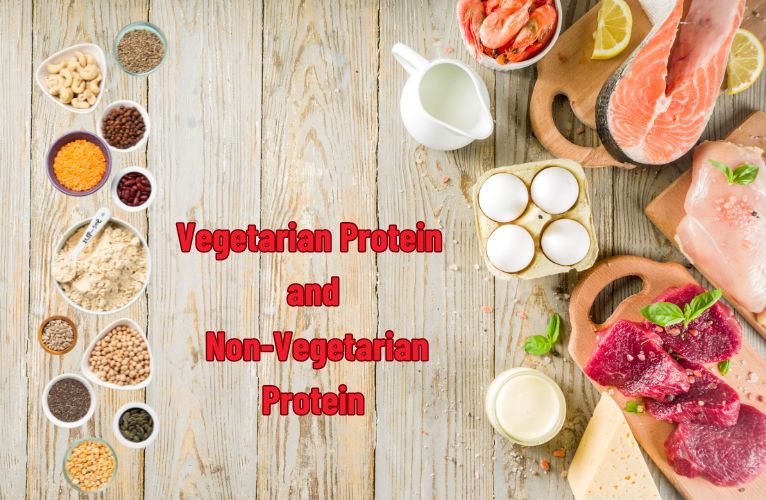Have you ever wondered which food is highest in protein and whether vegetarian or non-vegetarian protein sources are better for your health?
As we become more conscious of our dietary choices, understanding the importance of protein and identifying highest protein food options becomes crucial.
This blog will delve into the significance of protein, compare vegetarian and non-vegetarian sources, and guide you towards making informed decisions about your protein intake.
Importance of Protein in Our Body
Proteins are the building blocks of life, composed of amino acids that our body needs to function properly. They play a vital role in muscle growth, immune function, and maintaining healthy skin, hair, and nails. Without adequate protein, our bodies can't repair cells, make new ones, or carry out many critical processes. Thus, understanding what foods are naturally high in protein and integrating them into our diet is essential for overall health and well-being.
How Much Protein Intake Do We Require Daily?
The daily protein intake varies depending on factors like age, gender, and activity level. For an average adult:
- Men: Aim for about 56 grams of protein per day, which can come from a variety of protein rich food sources like lean meats, fish, dairy, and high protein vegetables.
- Women: Aim for about 46 grams of protein per day. Incorporating a mix of high protein snacks like nuts and seeds, along with meals that include highest protein food sources, can help meet this requirement.
Benefits of Protein Intake:
- Muscle Growth and Repair: Protein is crucial for building and repairing muscles, making it essential for everyone, from athletes to those recovering from injuries.
- Boosts Metabolism: Consuming high protein snacks and meals can help increase your metabolic rate, aiding in weight management and fat loss.
- Supports Immune System: Protein-rich foods contribute to the production of antibodies, enhancing your body's ability to fight off infections.
Difference between Vegetarian and Non-Vegetarian Protein:
|
Aspect |
Vegetarian Protein |
Non-Vegetarian Protein |
|
Digestibility |
Easier to digest and typically causes less gastrointestinal discomfort. |
Often considered more complete but can be harder to digest for some. |
|
Amino Acid Profile |
May lack one or more essential amino acids but can be complemented. |
Contains all essential amino acids in most sources. |
|
Nutrient Content |
Rich in fibre, vitamins, and antioxidants. |
High in B-vitamins, iron, and zinc. |
|
Environmental Impact |
Lower carbon footprint and more sustainable. |
Higher carbon footprint due to livestock farming. |
Vegetarian Protein Sources:
- Lentils: 100 grams of cooked lentils provide about 9 grams of protein. Lentils are a protein rich food for vegetarians and also offer fibre, iron, and potassium.
- Chickpeas: 1 cup (about 164 grams) of cooked chickpeas contains approximately 15 grams of protein. Chickpeas are versatile and can be used in various dishes from hummus to salads.
- Quinoa: This ancient grain provides 8 grams of protein per cup (185 grams) when cooked. Quinoa is also considered a complete protein, containing all nine essential amino acids.
- Tofu: 100 grams of tofu delivers about 8 grams of protein. Tofu is a staple in many vegetarian diets due to its adaptability in different cuisines and its natural protein in food.
Non-Vegetarian Protein Sources:
- Chicken Breast: 100 grams of cooked chicken breast offers around 31 grams of protein. It's lean and a highest protein food that is low in fat.
- Fish (Salmon): 100 grams of cooked salmon provides approximately 25 grams of protein along with omega-3 fatty acids, making it a heart-healthy choice.
- Eggs: One large egg contains about 6 grams of protein. Eggs are incredibly versatile and are considered one of the highest protein food sources.
- Turkey: 100 grams of cooked turkey breast has about 29 grams of protein. It's lean, low in fat, and provides important vitamins and minerals.
Should You Consume Supplement Protein Sources?
Supplement protein sources, such as whey protein or plant-based protein powders, can be beneficial, especially for athletes or those with increased protein needs. They offer a convenient way to ensure you're meeting your daily protein requirements. Here are four popular options:
- Whey Protein: Derived from milk, it’s a complete protein with all essential amino acids, ideal for post-workout recovery.
- Casein Protein: Also from milk, it digests slowly, providing a sustained protein release, perfect for nighttime use.
- Pea Protein: A plant-based option, rich in iron and an excellent choice for vegans or those with dairy allergies.
- Soy Protein: Another plant-based option, offering a complete amino acid profile and beneficial for heart health and cholesterol levels.
However, it's generally recommended to obtain protein rich food from natural sources to also benefit from the additional nutrients these foods provide. Supplements should be used to fill gaps in your diet rather than as the primary source of protein.
Which is Better - Vegetarian or Non-Vegetarian Protein?
The question of whether vegetarian or non-vegetarian protein is better doesn't have a one-size-fits-all answer; it largely depends on your meal requirements and personal preferences. Both sources of protein offer highest protein food can fit into a balanced diet effectively.
Meal Requirements and Preferences:
- Dietary Needs: For example, if you're an athlete or bodybuilder, you might prioritise protein sources with a complete amino acid profile and high bioavailability, which are often found in non-vegetarian sources like chicken, fish, and eggs.
- Digestibility and Allergies: Some people find that they digest plant-based proteins more comfortably. Knowing how your body reacts to different protein sources can help guide your choices.
- Ethical and Environmental Considerations: Many people choose vegetarian or vegan diets for ethical reasons related to animal welfare or environmental sustainability.
Studies have found that the overall health of vegetarians tends to be better than that of non-vegetarians. Vegetarian diets are often associated with lower risks of heart disease, hypertension, type 2 diabetes, and certain cancers. This is largely due to the higher intake of fiber, antioxidants, vitamins, and minerals from plant-based foods. On the other hand, non-vegetarian diets can provide essential nutrients like vitamin B12, iron, and omega-3 fatty acids, which are sometimes harder to obtain from plant-based foods alone.
Conclusion:
Both vegetarian and non-vegetarian proteins have their unique advantages and can be part of a healthy diet. Whether you prefer high protein vegetables or lean meats, the key is to include a variety of highest protein food. Those seeking a reliable source of high-quality protein, incorporating Eggoz eggs into your diet can be an excellent choice, combining convenience with superior nutritional value. By balancing your protein sources and considering factors like digestibility, nutrient content, and environmental impact, you can make informed choices that align with your health goals and values.


